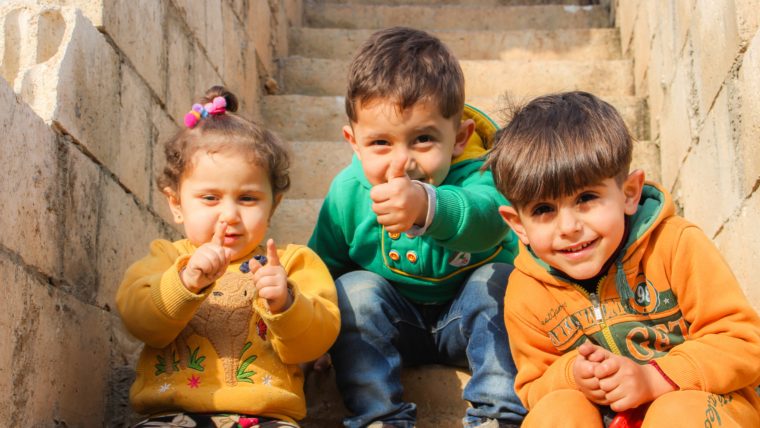
In the classes I teach, many parents resist the idea of getting rid of punishment once we reach that section of the course. I’m guessing it’s one of the reasons it’s not mentioned until the 6th week of class. If we covered it any sooner, it might send them running for the door before they even walked through it. I mean, no punishment ….that must be permissive and if not, it’s just downright impossible…isn’t it? I’m here to tell you no, it’s not. And it’s not a big deal either. Here’s why:
Punishment is Unnecessary – If You Know How to Talk
A lot of people can’t wrap their mind around getting kids to cooperate or learn from something without a punishment or consequence. When I hear this in class, I remind them how well the skills they have learned in the previous weeks have worked. Then I ask them if these skills have reduced the need for punishment. I always get a silent nod as though they are realizing all at once that punishments and consequences have already become unnecessary! Parents have learned to listen and to talk in such a way that their kids are already cooperating and doing “the right thing” a lot more often.
Parents learn how to talk so children have enough information to want to change and they discuss “lapses in judgment” that children make with the child. It is talked about in a way that the child understands WHY a choice could have caused harm or gone against a family value. That is the point of punishment after all, isn’t it? To make a child understand how he has caused himself or another harm. It is at this point in class that I can hear the coin drop with parents when they realize that they already ARE parenting without punishment and they haven’t mysteriously turned into some hippie guru doing it.
Punishment Prevents Kids From Thinking About Their Own Morals
I have seen a lot of clear-cut examples of this in watching kids interact with each other and it still blows me away. Kids that have had thoughtful discussions with their parents about why they chose to do or not do something are developing important critical thinking skills. They aren’t just doing something to avoid punishment, and behaving automatically to avoid it – they are developing moral compasses. Parents often ask for examples of this and so here I share an example:
My daughter was eating lunch outside at a park with a group of girls. A wrapper belonging to my 5-year-old daughter’s blew away in the wind. Another girl told her that she’d better go get it, or she’d get in trouble. My daughter replied, “We don’t do trouble at our house, but I’m going to go get it anyway,” and she left to throw it away. The other girl looked confused and asked her, “Why did you get it if you knew you wouldn’t get in trouble? I would just leave it if nothing ever happened to me.” My daughter, a little upset, told her in a somewhat loud voice, “BECAUSE! IT HURTS THE EARTH!”
Calming down some she continued on, “You throw your trash away so the earth doesn’t get filled with trash. If you don’t do it then someone else has to and that isn’t very fair. You don’t want to hurt the earth do you?” The other child grew quiet and finally said, “I never thought about it like that, I don’t want to hurt the earth either.” And they went on to finish their lunch without a thought, while I, in turn, had lots of them.
Without sounding like I’m some magical wizard of morally superior children, let’s talk about getting kids to understand their impact. Typically when things like this happen and my daughter does something like throwing trash on the ground, I send an I-message like I wrote about in a previous post.
Instead of threatening her to go pick up trash, which may very well get her to do go do that, I help her understand the impact. This way she has enough information to understand why it’s important and it helps build a brick in her moral code. Instead, I say, “When there is trash on the ground I worry it doesn’t make it into the trash can and that can cause a whole lot of trash on the ground after a while.” Now she has enough information to know why I don’t like it, she gets to know my own morals about it and decide if she wants to adopt them. If not, I can follow it up with, “If your trash is on the ground, I’m concerned I’ll have to do it, and I really don’t want to pick up someone else’s trash.”
Through these series of statements, she has many chances to be helpful, cooperative and thoughtful. None of which would happen if she were worried about being punished. In the meantime, she changes her behavior and the threat of punishment isn’t even necessary. She has learned to consider the environment, she has learned to consider me, and she’s learned to communicate her values; all the characteristics we inadvertently avoid when we try to coach through punishment. So it is here that I ask you to reflect on what it is you are trying to teach and is it having the impact YOU want? If not…maybe there’s another way.
Other posts you might like:
Why I don’t Spank, Punish, or Bribe My Kids – Kelly Meier, Respectful Parent
Why Punishment Doesn’t Teach Your Child Accountability
Punishment Doesn’t Work – Psychology Today

[…] Cooperative Kids Without Punishment […]